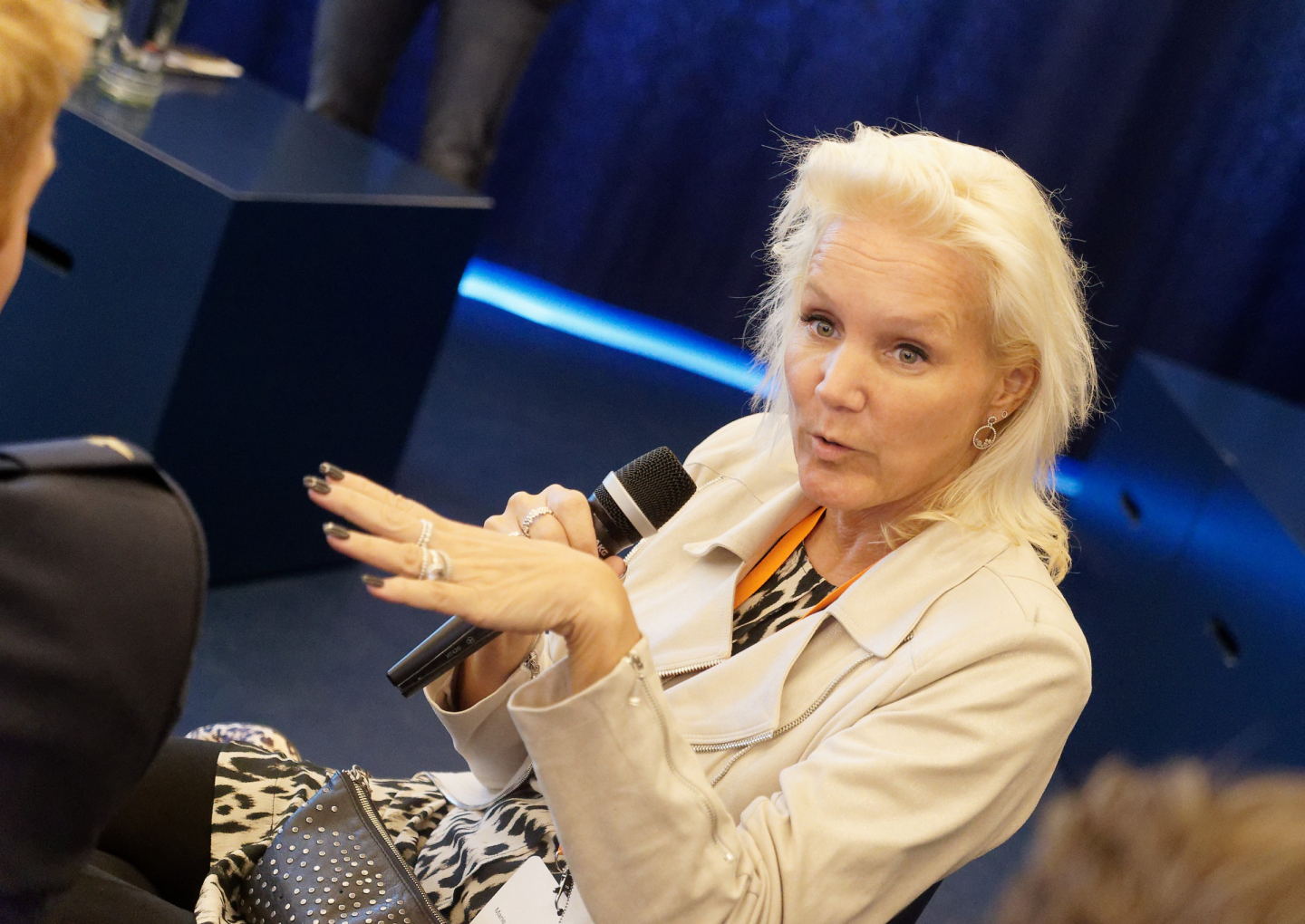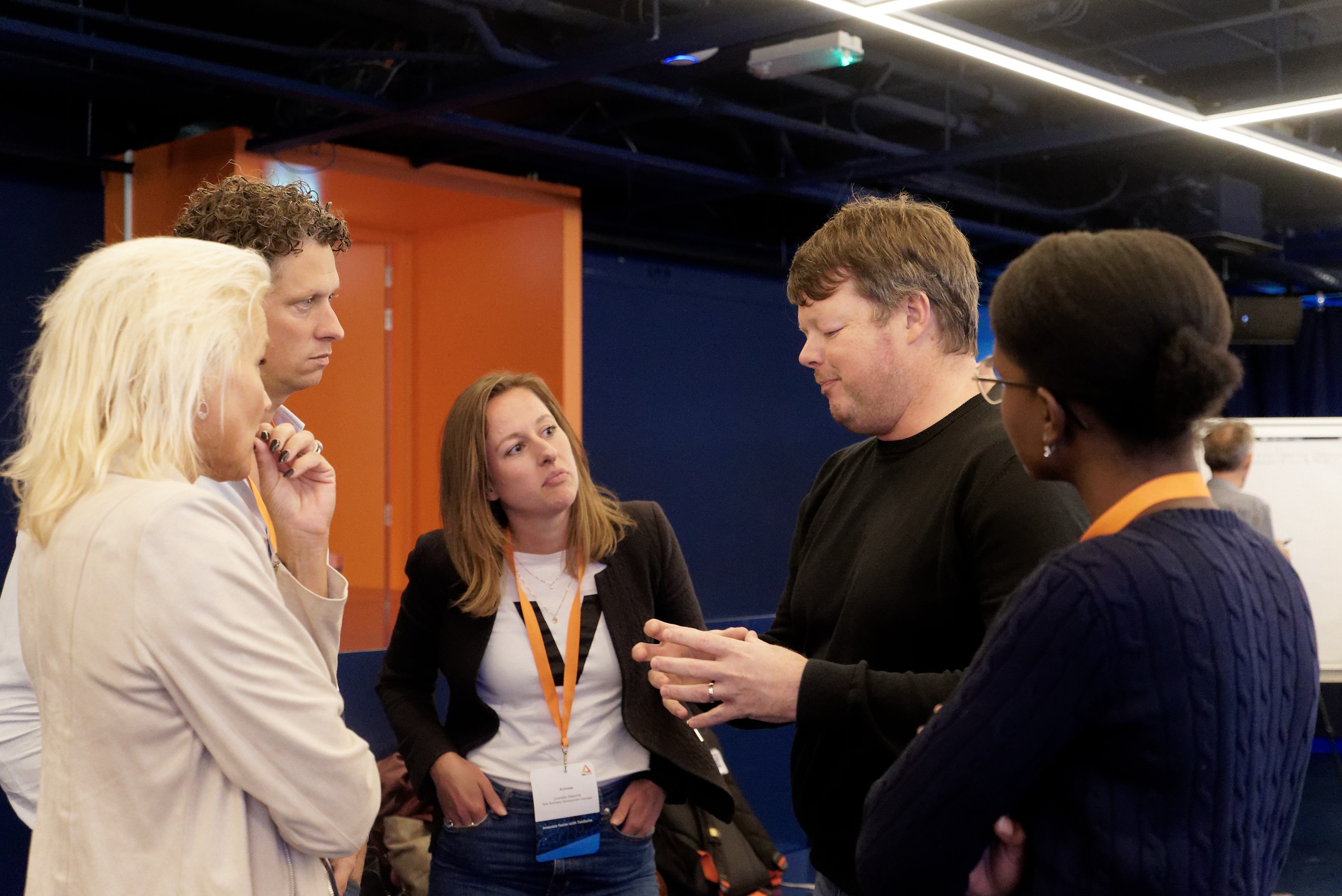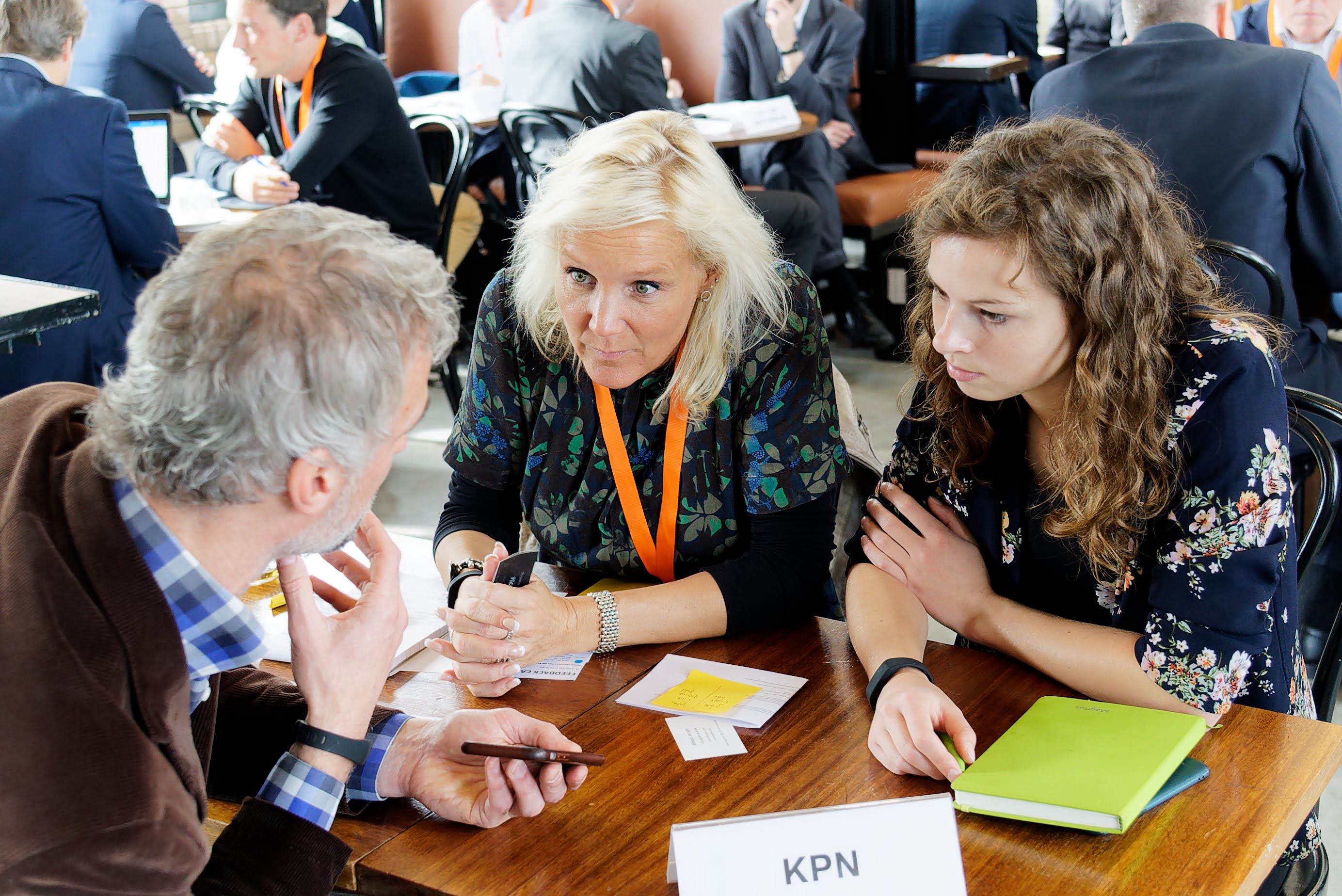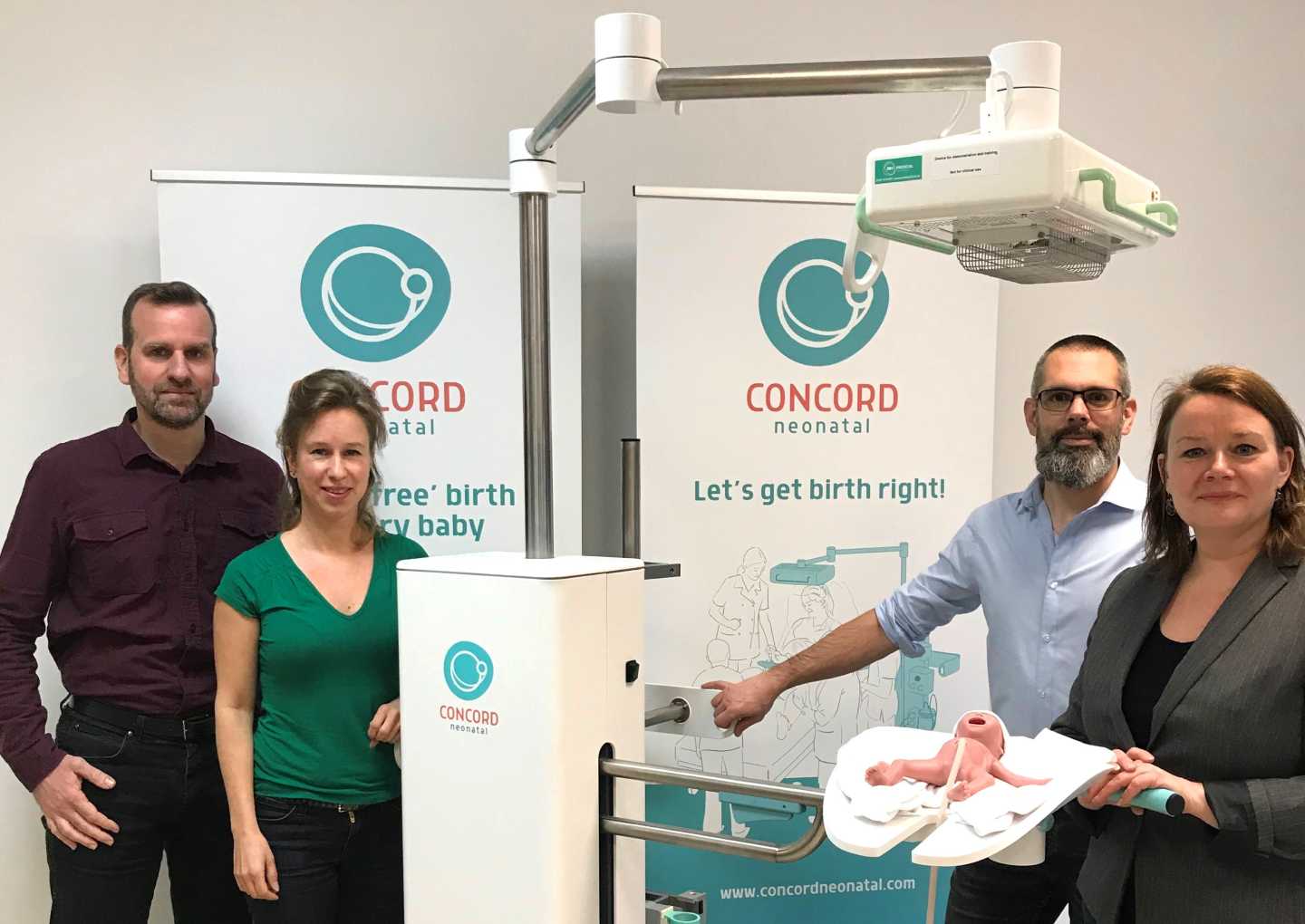Rianne Rotink and Concord Neonatal transfer academic invention into clinical practice innovation
Rianne Rotink shares the story of her unique care invention & the role it can play on a societal level.

Although she has been working at KPN since 1996 in different positions, from marketer to marketing lead for Hi to change manager, she has not at all the feeling at all that she’s part of KPN’s furniture. “I’ve had so many opportunities to develop myself and reinvent myself in every job I got, that it doesn’t feel like I’ve only worked for one company since I graduated.”
And that’s true of course, The KPN of 1996 is also entirely different from the KPN of 2018. Especially when it comes to working with startups. “Not so long ago, large companies such as KPN were closed. And if there was ever a startup contact, the company would hold the cards against their chest. That doesn’t happen anymore”, tells Van den Boomgaard who herself is living proof of this in her role as Liaison Manager Startups.
But what does a Liaison Manager Startups at KNP actually do? “In short, my team and I are the eyes in the market and the supervisor of startups within KPN. Based on business questions within KPN, we are looking every day for interesting companies to work with, so we can deliver products and services that can help our customers or improve our internal processes. If so, we can start selling their product, do part of the marketing and sales, or set up a whole new service together.”
An example of the latter is the deal that KPN is making with Tessares who developed a solution for bundling mobile and fixed bandwith for rural areas and have a team that Marie Jose strongly believes in terms of solution, approach and professionalism. Another company in which KPN has invested is Sensara which develops sensors for elderly people living at home. “We are very good at building networks, but less good at making sensors. We work together with various startups that are able to do so.”
In total, the KPN database contains now more than 2350 startups. In 2018 alone, 92 deals were made with startups, in the past three years even 180. Besides that, two departments within KPN now work full-time with startups. With KPN New Business, where Marie Jose is in the lead for the startup part, KPN is researching and developing innovative products and services for future growth often in cooperation with startups. With KPN Ventures, KPN’s participatory arm, KPN invests in European technology companies at their growth stage. Both departments work closely together to organise innovative events and partnerships that connect startups, companies, universities, and government. “For example, we organise Lab Days, meetings where we introduce participants to themes such as Connectivity, Internet of Things and Security. We also work together with universities, knowledge institutions, and other large companies.”

Having an own ecosystem like that is essential if you want to succeed as a corporate in working with startups, she says. “It helps us in various areas, like the scouting part of startups, introducing startups to others, sharing knowledge on innovation and trends and it makes working more fun.”
But there are more lessons she wants to share. For instance: focus on proactive scouting of startups on current business challenges (formulated by business owners). That creates a better matchmaking percentage than reactive scouting (suggesting startups to the business based on the startups we meet during the year) and that you need a top-level commitment on Open Innovation.
Walk the walk, talk the talk. The fact that management takes startups seriously must also be evident from the budget and resources. At KPN, for example, various units have been set up to support startups. “Working in an independent department like that really helps us to learn the mindset of startups, and at the same time be able to look after our interests as a corporate.”
Not that this is an easy task, by the way, she stresses. “it’s all about trial and error. You have to fight continuously to make your processes fit those of the startups. A challenge, especially in the area of compliance. Data and customers are important issues for corporates, while startups are not always that interested in this aspect. Then you should try to do a pilot test with anonymized/fake data for startups, but at the same time make them aware of the importance of good compliance.”
Another tip: create an environment where both parties dare to learn from each other. “Corporates, for instance, excel in operation excellence, meaning that everything within the organization must be good at once, with high-quality standards, since our customers expect that. Startups could sometimes be better at this, But also: how do you build a brand? Corporates invest years there, startups look often less ahead in this respect. These differences exist, but we do not see this as an established fact, we want startups to learn from the things that do go well within corporates, just as corporates can learn from startups to look at things differently and to speed up innovation.”
The key to success here is — as always — collaboration. “Innovation nowadays goes so fast that it is becoming increasingly difficult to put a new product on the market quickly yourself. That’s why you have to work with smaller companies that are good at it or even share your knowledge with other large companies, at the end: the entire ecosystem in the Netherlands will benefit from this.”

Talking about that, what does she think should be done to further strengthen the startup-ecosystem at a national level? First, be realistic. “We have created nice startups, but we’re not the new Silicon Valley, that gap in culture and capital is just too big. But there is much to gain if we join forces and share knowledge and if we, as a country, really start claiming and growing certain industries.”
And if the government also helps a hand, she firmly believes even more beautiful things can happen for our country. “Attracting talent is a big challenge for startups in the early phase. It is important to be able to reward employees with shares as salary. The taxation of these shares must be postponed until the shares are redeemed so that employees do not have cash-flow problems. There is also still far too little capital available for startups in the early phase. To allow more family, friends, and fools to invest in the early stages of startups, these investments need to be made more attractive from a tax point of view by making venture capital tax-deductible. If we decide that together, we will make a huge leap forward, also on a national level…”

Rianne Rotink shares the story of her unique care invention & the role it can play on a societal level.

Lex Hoefsloot, co-founder of Lightyear, tells how Lightyear is changing the world of mobility and stresses the importance of building your team and culture.

Today: Mark Post, co-founder of Mosa Meat, tells the story of his company and stresses the importance of being passionate.